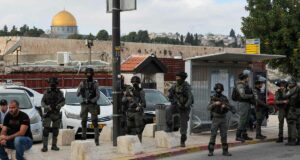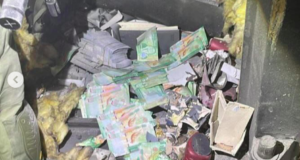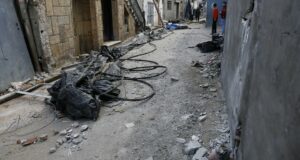Popular Struggle Coordination Committee
28 November 2009
For immediate release:
This morning, a group of demonstrators in the West Bank village of Ni’lin managed to surprise the Israeli army and, using bolt cutters, cut open one of the gates in the fence built on the village’s lands. Israeli soldiers arrived at the scene and fired rubber-coated steel bullets as well as tear gas canisters at the demonstrators, followed by the use of live ammunition.
Eight people were wounded during the action. Seven demonstrators were injured by rubber-coated steel bullets, and a one and a half year-old baby was evacuated to a Ramallah hospital suffering from tear gas inhalation, caused by soldiers firing a tear gas canister into her house.
Today marks the first time Israeli soldiers invade the residential parts of Ni’lin in an attempt to suppress a demonstration, since Palestinian demonstrator Aqel Sadeq Srour was shot dead by sniper fire approximately six months ago (5 June 2009), during a protest at the village. Srour’s brother was arrested today in the village center.
Today’s response by the Israeli army illustrates the ongoing policy of escalation which the army has been implementing in Ni’ilin for the past three weeks. This policy includes reintroducing the use of 0.22 caliber live ammunition as a means of crowd dispersal – in direct contradiction to the Chief Military Attorney’s orders.
Since June 2008, five Palestinian demonstrators have been killed by soldiers’ fire during protests in Ni’ilin, including two minors – 10 year-old Ahmed Mousa and 17 year-old Yussef Amirah. A further 34 demonstrators have been injured by live ammunition, and 87 have been arrested.
As a result of the separation barrier’s construction, 3,920 dunams of Ni’lin’s lands (30% of all accessible lands) have been de-facto confiscated; this is in addition to the 1,973 dunams on which Israeli settlements have been built since 1967.
 International Solidarity Movement Nonviolence. Justice. Freedom.
International Solidarity Movement Nonviolence. Justice. Freedom.


